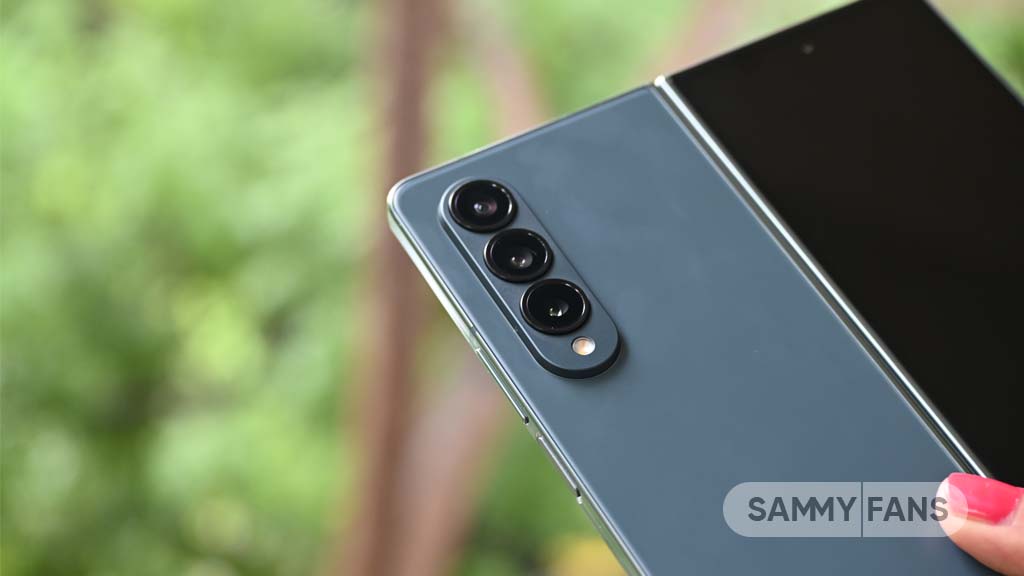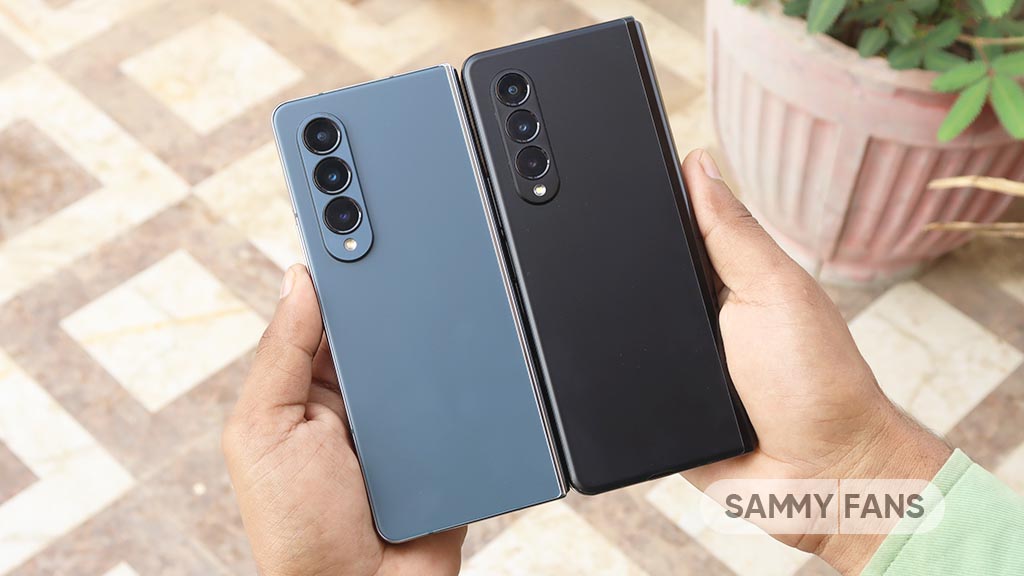Technology
Samsung’s Galaxy S24 could debut Wi-Fi 7 technology

Currently, Wi-Fi 6E is the latest Wi-Fi version, which will be succeeded by Wi-Fi 7 in 2024, and it’s ready to debut with Samsung’s Galaxy S24 series in the second half of the year, reports DigiTimes. It’s not going to happen for the first time as Samsung has always been the first Android vendor to debut the latest version.
At present, the latest Apple iPhone models are using the Wi-Fi 6 technology, and there’s no notable flagship phone launching in near future, the company will directly switch to the 7th iteration in 2024. The latest report suggests that Wi-Fi 6E will just be a “transactional technology, as Wi-Fi 7 launching in 2024.
Join Sammy Fans on Telegram
According to the report, Wi-Fi 7 technology will be capable of using 300MHz channels with the support of 4K quadrature amplitude modulation (QAM), offering up to 2.4x faster speeds compared to Wi-Fi 6 without extending the number of antennas.
Follow Sammy Fans on Google News
Per the info via Wi-Fi Alliance, the upcoming Wi-Fi 7 is likely to be equipped with speeds of between 30Gbps to 40Gbps. Meanwhile, it’s important to mention that the Wi-Fi 7 technology will be introduced with routers and laptops ahead of mobile phones.

Earlier this year, Taiwanese chipmaker MediaTek showcased the Wi-Fi 7 and later on Intel revealed that this new standard is coming to laptops by 2024. Apart from this, the US chipmaker Qualcomm is also working on Wi-Fi 7 chip options to adopt it as early as possible, which could debut with FastConnect 7800 chip.
Samsung
A tech lover’s journey with the Samsung Galaxy Z Fold4: A tale of disappointment

I have been a huge fan of technology, always eager to explore the latest electronic gadgets including smartphones, headphones, laptops, and several others. I have owned the Samsung Galaxy Z Fold4 5G for two years now, using it as my secondary phone for the last year.
I have always treated it carefully, so you can imagine my situation when I noticed a small black dot on the inner screen of the fold. It wasn’t long before the entire inner display stopped working, while at the same time, the outside screen remained just fine.
This has been quite a setback for me, particularly because I paid over $2000. You expect something that expensive to last, right? But here I am, with a phone where the main feature—the folding screen—is dead. Samsung wants around $650 to fix it, which seems a lot, especially since the phone itself is now only worth around $800-900 if I go for the trade-in. This questions how well these expensive foldable phones hold their value over time.
What’s even more frustrating is not knowing why the screen failed. After using various Samsung foldable phones over the years, this issue makes me think twice about the reliability of the foldable. It’s not just about my experience; it’s a concern for anyone interested in foldable technology.
I am highlighting a difference between Samsung’s marketing narrative, where the company positions itself as a leader in innovation and customer service and the experience with its products. The failure of the Samsung Galaxy Z Fold4’s inner display questions whether Samsung truly stands by its products when the product faces issues.
By sharing my experience here, I want to inform other buyers like me about the potential pitfalls of purchasing such high-end tech. I also want to influence Samsung to reconsider its approach to customer service and product reliability by bringing attention to these issues.

Despite being excited about the concept of foldable phones, especially the easy multitasking feature (my favorite), this negative experience has led to hesitation (or doubt in my case) about future purchases.
I hope Samsung will recognize these customer experiences and attempt to address such issues, either through improved product design, enhanced customer support, or more transparent communication about product limitations or potential issues.
These sudden breakdowns are damaging Samsung’s foldable phones’ reputation and might make potential buyers think twice before getting one.
Disclaimer
I have reviewed all Samsung Galaxy Z Fold and Flip devices launched to date. I will share more information on my X account. You can connect me there.
Technology
Samsung phones might use TSMC-made Exynos chip

Samsung Galaxy S25 series could not use Exynos 2500 due to yield concerns. A new rumor suggests that Samsung could manufacture a future Exynos chip using a TSMC process node. It’s a very wild input, rendering fans in a head-scratching situation.
Tipster Jukanlosreve claimed that Samsung is “considering” manufacturing Exynos with TSMC. The revelation appears at a time when we are nearing to the potential Galaxy S25 series unveiling early next year.
Recently, it was reported that TSMC’s 3nm yield rate is above 80%. It’s a stable yield rate, with rumors citing the rate is peaking up to 90%. Usually, chip manufacturers target a 70-75% yield rate to conduct mass production of chipsets.
TSMC is the biggest rival of Samsung Foundry business. Over the years, the Taiwanese firm widened the gap with its Korean counterpart. It has plenty of major clients including Apple, Qualcomm, MediaTek and Google.
Until the Pixel 9’s Tensor, Samsung has produced Google’s chipsets. However, the Pixel maker switched its production partner, taking TSMC in. The planned 3nm Exynos 2500 is also reportedly canceled due to extremely low yield.
Samsung + TSMC: Is it possible?
An alliance between Samsung and TSMC is not impossible, it could indeed be materialized. Samsung’s System LSI business designs Exynos for Galaxy devices. Samsung Foundry is responsible for the fabrication of mobile platforms.
Silicon manufactured using the TSMC process is way better than Samsung Foundry-made products. TSMC chips offer better performance and decent power efficiency, as well as lower overheating concerns than Samsung Foundry.
We’ve heard Samsung’s plan to spin off its Foundry division in the next three to five years. Until the Samsung Foundry reaches an adequate level of yield rate and manufacturing advancements, System LSI can ink a deal with TSMC.
Technology
Is Samsung’s Galaxy Watch skipping out on Apple’s LTPO OLED advantage?

After the Watch 10 series launch last month, the smartwatch market is buzzing with excitement for the upcoming Apple Watch 11. Reports indicate that Samsung plans to work with Apple on developing LTPO OLED technology for the new watch, while the Galaxy Watch seems to be falling behind in adopting this technology.
Apple first introduced LTPO OLED technology in its Apple Watch series with the Watch 4 and has made improvements since then. Released in 2023, the Apple Watch Ultra 2 uses LTPO2. Now, the latest LTPO3 is available in the Apple Watch 10 series.
In addition to the Apple Watch, both the Pixel Watch 2 and OPPO Watch 2 also feature LTPO displays. However, it remains uncertain whether Samsung will adopt LTPO technology for its Galaxy Watch models.

Samsung Display has been a leader in the OLED market and has previously supplied displays for Apple products, including the Apple Watch. However, Samsung is currently focusing on its Galaxy Watch line, which uses Super AMOLED displays. These displays are colorful and perform well, they don’t offer the same power savings as LTPO technology.
The Korean tech giant has been successful with this approach in the smartwatch market but it hasn’t yet adopted the new LTPO technology for its watches. Still, Samsung is expected to participate in future developments for Apple’s upcoming watch model, the Apple Watch 11 series.

Notably, LTPO stands for low-temperature polycrystalline oxide, a technology that combines oxides with low-temperature polycrystalline silicon. LTPS provides fast responses to make displays quick to react, while oxide TFTs are more energy-efficient. By blending these two technologies, LTPO helps reduce power use, which can extend battery life.
Despite plans to provide LTPO OLED to Apple, Samsung currently has no plans to apply this technology to the Galaxy Watch. This means that the Galaxy Watch will miss out on the benefits of advancements in LTPO OLED technology. Stay tuned for more updates.
Apple iPhone 17’s LTPO upgrade is double-edged sword for Samsung












